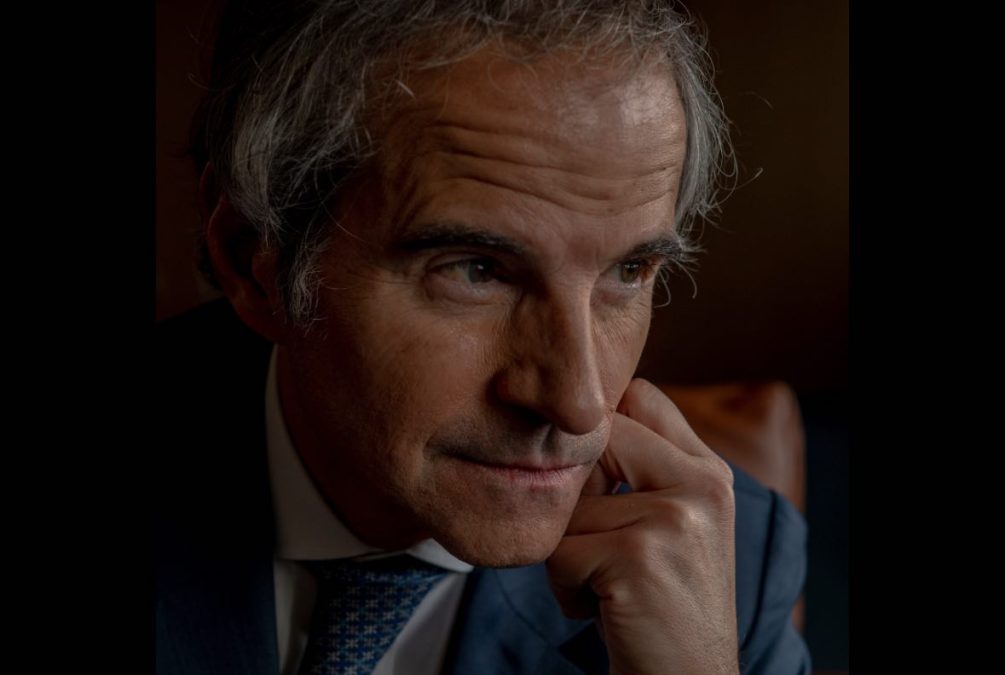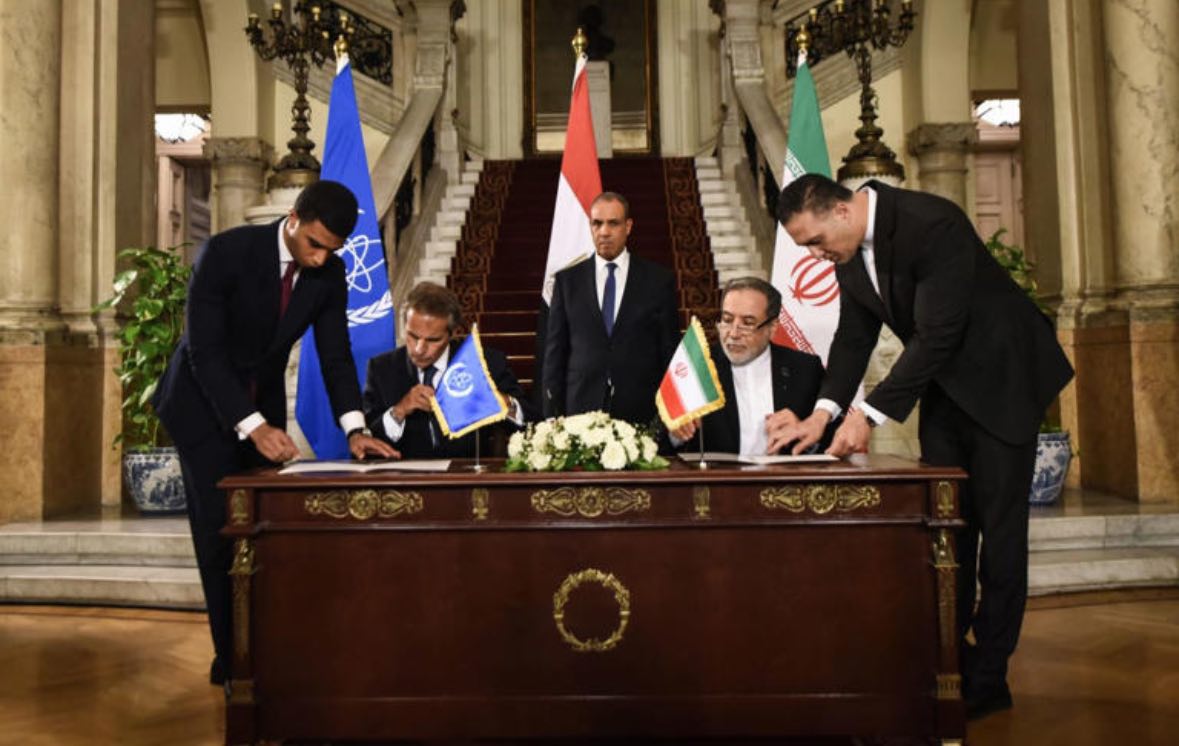Tehran and Grossi: Between Diplomacy and Iran’s Anger
Tehran and Grossi: Between Diplomacy and Iran’s Anger
In less than three months, the relations between Tehran and the International Atomic Energy Agency have shifted from a tense diplomatic atmosphere to direct military confrontation and then returned to fragile efforts for repair.
A series of consecutive events—from the adoption of a harsh resolution against Iran by the Board of Governors to Israeli and American military attacks on Iran’s nuclear facilities, the exit of agency inspectors, and finally the drafting of a new cooperation framework—have brought the complex and critical relations between Iran and the agency to an unprecedented stage.
In the midst of this, the main question remains: Can this new process fill the deep gaps that have been created and pave the way for resolving nuclear disputes?
In the following report, written by Saeed Aghanj, editor-in-chief of Irangate News Agency, a comprehensive and detailed picture of recent developments, diplomatic tensions, official reactions, and the behind-the-scenes of crisis diplomacy in Vienna is presented—a report on the pulse of Iran’s nuclear developments under the heavy shadow of war and on the brink of decisive decisions.
Turmoil in Tehran-Agency Relations: From the Ruins of War to Hope in a New Framework
From the end of the previous seasonal meeting of the International Atomic Energy Agency’s Board of Governors in late June to the start of the new round, less than three months have passed, but in this short period, relations between Tehran and the agency have faced an unprecedented crisis.
Just hours after the approval of a resolution proposed by the Quad Group, consisting of the United States, the United Kingdom, France, and Germany, against Iran, Israeli attacks on Iranian soil began. At that time, country representatives were still present at the agency’s headquarters when the war began through Israeli attacks and Iranian military responses. Subsequently, with the United States entering the battlefield and attacking several Iranian nuclear centers, this conflict continued for 12 days.
A war that ignited against the backdrop of escalating tensions over Iran’s nuclear program—a program more intertwined with the International Atomic Energy Agency than any other entity. So much so that only hours after the clashes began, the agency’s Board of Governors held two emergency meetings to review the attacks on Iran’s nuclear facilities.
Intensified Political Attacks on Agency Director Grossi in Tehran’s Crosshairs

With the intensification of attacks on Iran’s nuclear centers, a wave of criticism against Rafael Grossi, the agency’s director-general, arose in Tehran. Some observers in Iran did not see the start of the war as unrelated to the harsh resolution of the Board of Governors and accused Grossi of negligence. This critical atmosphere quickly turned into a phase of threats, not only from fringe figures but also from some high-ranking officials.
Among them, Ali Larijani, advisor to the Supreme Leader of the Islamic Republic and member of the newly established Defense Council, explicitly stated that once the war ends, they will settle accounts with Rafael Grossi.
Following these remarks, reports were published, including in The Wall Street Journal, indicating that Austrian security officials, the country where Grossi resides, have taken the threats seriously and increased his protection level.
Suspension of Inspections and Agency Experts’ Exit from Iran
The consequences of the war were not limited to the political level. With the onset of hostilities, senior agency inspectors, who were engaged in technical missions in Iran under agreements, left the country due to war conditions. After the inspectors’ departure, Iran refused to readmit them, effectively suspending inspection activities.
In the months following the war, the presence of inspectors in Iran was very limited and only reported in some low-risk centers like the Bushehr plant. According to some media sources, Iran had only agreed to the entry of Russian inspectors.
In response to criticisms, Iranian officials emphasized that this decision was not solely due to security concerns or political anger, but pointed out that there is no framework for inspecting facilities damaged during military attacks.
Iran claims that inspections were designed under normal conditions and that until a mechanism suitable for the new situation is developed, a return to the previous process is not possible—a reasoning that the three European countries party to the JCPOA have rejected.
Cairo: Scene of Sudden Understanding
Amid the ongoing Board of Governors meeting, Rafael Grossi’s sudden trip to Cairo and meeting with Abbas Araghchi, Iran’s foreign minister, sparked surprise among diplomats. The result of this meeting was the achievement of a new cooperation framework that revived hopes for easing the tense relations between Tehran and the agency.
Many diplomats believe that if Iran fully implements this framework, there can be hope for reviving the path of trust-building and resolving disputes. Even Massimo Aparo, the agency’s deputy director-general, clarified in response to a question about the framework’s impact on halting the return of nuclear sanctions on Iran, stating that if fully implemented, the possibility of reinstating the postponement plan exists.
Grossi Against Political Expectations
In response to pressures to condemn Israel for the attacks, Rafael Grossi maintained his stance and repeatedly emphasized that his responsibility is defined in a technical position, not a political one.
In two emergency Board of Governors meetings and also United Nations Security Council sessions, he only expressed deep concern about the attacks on Iran’s nuclear facilities and reiterated that approving, praising, or supporting any violent action is not within his duties.
He added that at the agency, we condemn the use of violence, but my responsibility is not to engage in political condemnations or name countries. Grossi stressed that this policy is not limited to this case and has been observed in other instances as well.
Security Threat or Political Considerations: Tehran’s Narrative
On the sidelines of the meeting, Reza Najafi, Iran’s permanent representative to the agency, was asked about the potential security threat against Grossi and its impact on his not traveling to Tehran. Najafi emphasized that Iran has not received any official report in this regard and said the director-general’s visit is a political decision that depends on the atmosphere and conditions.
However, criticisms within Iran of the recent agreement continue. One hardline parliamentarian, referring to Ali Larijani’s previous remarks, asked what happened that instead of settling accounts with Grossi, you agreed with the agency again.
Difficult but Possible Path
Will the dust of war and unprecedented tensions gradually lift from Iran-agency relations? Grossi explicitly stated at this meeting that the war created conditions that elicited emotional reactions.
In response to a question about the reduction of security threats following the recent agreement and the possibility of his travel to Iran, the director-general’s office has not yet responded.
Nevertheless, evidence suggests that both sides—Tehran and the agency—are striving to mend the gaps created by the war.
But the main question is whether these efforts will bear fruit in such a limited time or, as some in the West pessimistically view, the new framework will lead nowhere. In the diplomatic atmosphere of today’s Vienna, one answer is repeated more than anything else: difficult but possible.

